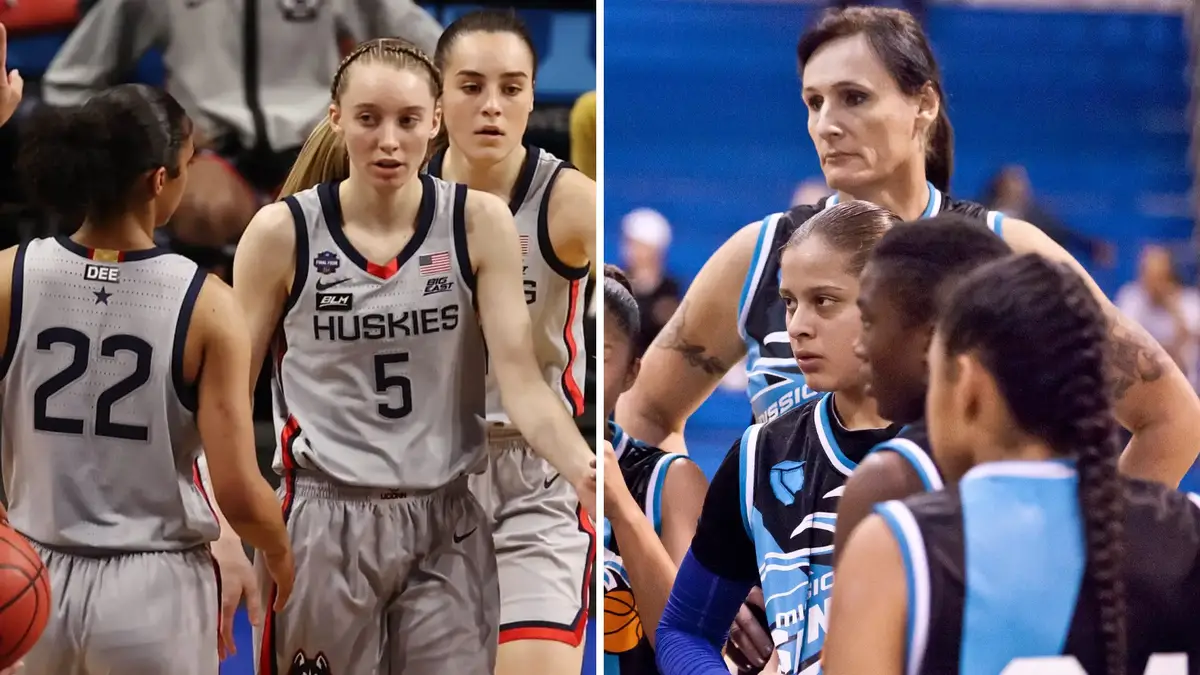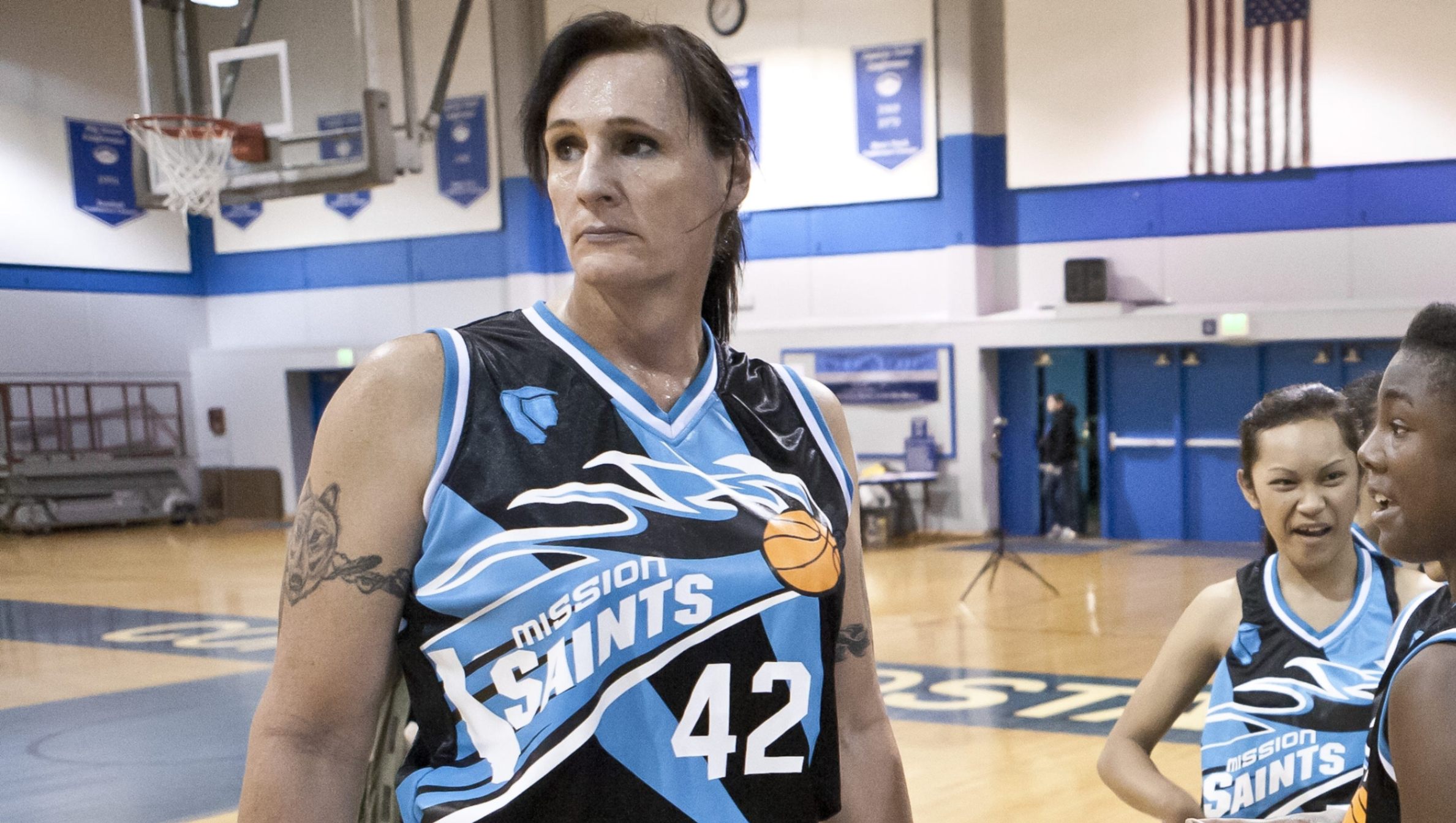
In a significant and controversial move, a high school girls’ basketball team has decided to refuse competing against teams that include biological men, citing fairness and safety concerns. This decision has ignited a heated debate within the sports community, drawing attention to the complex and sensitive issues surrounding gender identity and athletic competition.
 The DecisionThe team, from a prominent high school, released a statement through their coach, expressing their unanimous decision not to play against teams with biological men. The statement emphasized that their decision was based on principles of fairness and safety, arguing that competing against individuals with inherent physical advantages would undermine the integrity of the sport and place female athletes at a disadvantage.AStatement from the TeamIn their statement, the team said, “We have the utmost respect for all athletes, regardless of gender identity. However, we believe that it is not right to compete against biological men in girls’ basketball. The physical differences between male and female bodies can create unfair advantages, and we want to ensure a level playing field for all competitors.”
The DecisionThe team, from a prominent high school, released a statement through their coach, expressing their unanimous decision not to play against teams with biological men. The statement emphasized that their decision was based on principles of fairness and safety, arguing that competing against individuals with inherent physical advantages would undermine the integrity of the sport and place female athletes at a disadvantage.AStatement from the TeamIn their statement, the team said, “We have the utmost respect for all athletes, regardless of gender identity. However, we believe that it is not right to compete against biological men in girls’ basketball. The physical differences between male and female bodies can create unfair advantages, and we want to ensure a level playing field for all competitors.”
Statement from the Team
 In their statement, the team said, “We have the utmost respect for all athletes, regardless of gender identity. However, we believe that it is not right to compete against biological men in girls’ basketball. The physical differences between male and female bodies can create unfair advantages, and we want to ensure a level playing field for all competitors.”Reactions and ControversyThe decision has sparked a wide range of reactions. Supporters of the team’s stance argue that it is essential to maintain fairness in women’s sports and that allowing biological men to compete in girls’ and women’s categories undermines this fairness. They also highlight concerns about the safety of female athletes, noting that the physical differences between males and females could lead to increased risk of injury.Critics, however, view the team’s decision as discriminatory and exclusionary. They argue that transgender athletes should be allowed to compete in accordance with their gender identity and that inclusivity is a core value of sports. Some have called for policies that would facilitate the inclusion of transgender athletes while addressing concerns about fairness and safety.
In their statement, the team said, “We have the utmost respect for all athletes, regardless of gender identity. However, we believe that it is not right to compete against biological men in girls’ basketball. The physical differences between male and female bodies can create unfair advantages, and we want to ensure a level playing field for all competitors.”Reactions and ControversyThe decision has sparked a wide range of reactions. Supporters of the team’s stance argue that it is essential to maintain fairness in women’s sports and that allowing biological men to compete in girls’ and women’s categories undermines this fairness. They also highlight concerns about the safety of female athletes, noting that the physical differences between males and females could lead to increased risk of injury.Critics, however, view the team’s decision as discriminatory and exclusionary. They argue that transgender athletes should be allowed to compete in accordance with their gender identity and that inclusivity is a core value of sports. Some have called for policies that would facilitate the inclusion of transgender athletes while addressing concerns about fairness and safety.

Statements from Advocacy GroupsAdvocacy groups on both sides of the issue have weighed in. Organizations advocating for women’s sports have expressed support for the team’s decision, while LGBTQ+ advocacy groups have condemned it as a step backward for transgender rights and inclusivity in sports.Official ResponseSchool officials and athletic associations are now faced with the challenge of addressing this contentious issue. The school administration has acknowledged the team’s concerns and is in discussions with athletic governing bodies to find a resolution that respects the rights and concerns of all athletes involved.The Broader ContextThis incident is part of a broader national and international debate about the inclusion of transgender athletes in sports. Various sports organizations and governing bodies have different policies regarding transgender participation, reflecting the ongoing struggle to balance fairness, inclusivity, and safety.





